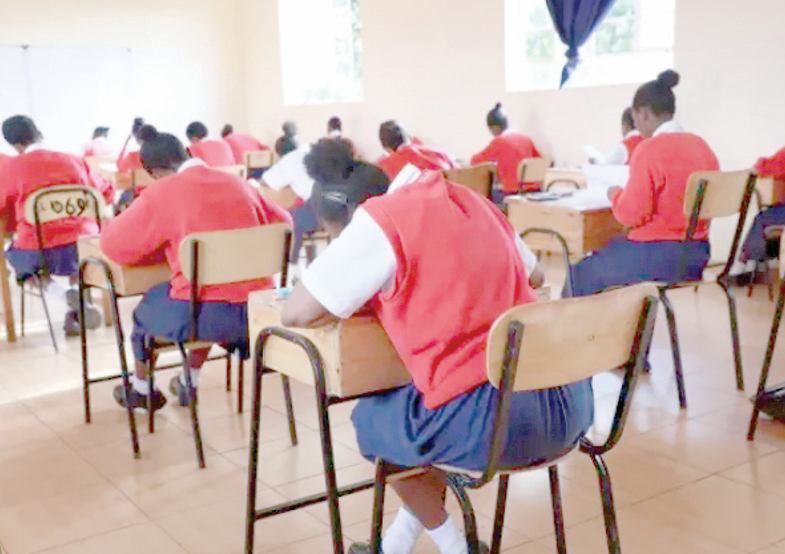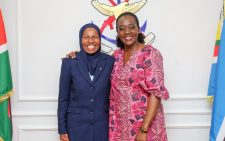Auditor General: Schools fleeced parents of millions

The Auditor General has revealed how unscrupulous heads of secondary schools fleeced parents of millions of shillings by illegally increasing tuition fees.
In some instances tuition fees were increased from the recommended Sh45,000 per year to Sh92,000.
Audit reports for 2022 and 2023 cite unsupported and unaccounted for capitation and grants advanced to various schools, irregular transfers to the Kenya Secondary School Heads Association (KESSHA), and excess supply of books.
The National Assembly’s Public Investments Committee on Governance and Education has said it will summon principals of several national schools to shed light on various audit queries.
National schools
Committee chairperson Jack Wamboka (Bumula) said lawmakers will start questioning principals of national schools before inviting those from extra-county and county schools.
“We want to pioneer the audit with national schools. We have agreed we start them before we go to the other institutions. Madam Auditor, please be assured that we will look at their books,” he said.
Among the schools mentioned are Giakanja Boys High in Nyeri county; Gatei Mixed Secondary in Kiambu; Thika High in Kiambu; St Cecilia Aluor Girls’ Secondary in Siaya; Kathiani Girls’ High in Machakos; Magereza Academy Secondary in Nakuru; Muhoho High in Kiambu; and Kambui Girls High in Kiambu.
At Thika High, for example, the report cites irregular increases in school fees and irregular payments for hosting Kenya National Examination Council (Knec) examiners, unsupported operations payments, lack of a procurement plan, and inaccuracies or variances in the financial statements.
The report says Thika High administrators irregularly increased school fees, contrary to Regulation 44 of the 2015 Basic Education Regulations, which provides that no public school or institution shall issue alternative fee structures other than those approved by the Education Cabinet Secretary.
The school raised tuition fees for forms Two and Three students to a whopping Sh85,623, against the ministry’s recommended Sh45,000.
The school also increased annual fees for Form Fours to Sh92,500, against the recommended Sh45,000.
Says the report: “This was contrary to Government Circular No. MOE.HQS/3/13/3 dated 16 June 2021 on guidelines on implementation of Free Day and Secondary Education programme, which stipulates that parents will only pay for school uniforms, boarding-related costs as reflected in the boarding fees structure and lunch for … day scholars. In the circumstances, management was in breach of the law.”
For Kathiani Girls, the report cited inaccurate school fund income relating to parents’ contributions, unapproved increase of school fees, irregular transfer of funds to KESSHA, non-compliance with the law on board of management composition, excess representation of board members, and late transfer of infrastructure funds from the operations bank account.
Regulations breached
The report shows that Form One students were charged Sh75,050 annually, against the Education ministry’s fee guidance of Sh45,000.
The school charged Form Twos and Form Threes Sh60,000, against the government’s guideline of Sh45,000, while Form Fours paid Sh66,000.
“This was contrary to Regulation 44 of the Basic Education Regulations, 2015 which provides that no public school or institution shall issue alternative fees structures other than those approved by the Cabinet Secretary. In the circumstances, management was in breach of the law,” the report says.
On the transfer of Sh152,000 to KESSHA, the report says the money was irregularly spent as the school is a private entity that is not subject to the 2012 PFM Act or any other public finance regulations
On payments made for hosting Knec examiners, the report shows that while the exams body said it had wired Sh19.4 million, the school received only Sh13,667,456, resulting in the school incurring costs amounting to Sh5,822,764.
That expense should have been Knec’s but was wrongly charged to the school account, contrary to Regulation 31(2)(a) of the Public Finance Management (National Government) Regulations, 2015.
On unsupported operations payments amounting to Sh6,833,768 in administration costs, the report says the payments were not supported with purchase requisitions, local purchase orders, delivery notes and store records.
For St Cecilia Aluor Girls, the report outlines school fund income, miscellaneous income, payments for tuition, payments for operations, boarding and school fund payments, infrastructure payments, personnel emoluments expenditure, and transfers of funds that were all unsupported.
The school also made irregular transfers of funds to KSSHA, received excess supply of books, and its student enrolment data was not confirmed.
Supporting documents
On unsupported payments for tuition amounting to Sh337,925, the report says the accuracy of the payments could not be confirmed as supporting documents including expenditure schedules were not provided for audit review.
The report also says that boarding and school fund payments amounting to Sh54,409,188 had no supporting documents, including expenditure schedules and bank statements.
On the transfer of funds amounting to Sh1.5 million, the report says supporting documents including bank statements and authorities from the County Education Boards were not provided for audit review, contrary to ministry circulars dated 1 January 2008 and 16 June 2021.
On Sh550,000 transferred to KSSHA, the report said the transaction was irregular as this is a welfare organisation that draws its membership from among school principals only and is not defined in government funding.
“In the circumstances, value for money transferred to KESSHA amounting to Sh550,000 could not be confirmed,” the report says.
At Giakanja Boys High School, the report cites excess supply of 572 books, with the Kenya Institute of Curriculum Development distributing 1,464 books while only 892 books were issued to students.
The report also mentions an expenditure of Sh865,400 on installation of a CCTV network that was not supported with budgetary approvals, as well as failure to prepare a school improvement plan and lack of a procurement plan.
For Magereza Academy Secondary School, the report lists inaccuracies in the school fund income (parents’ contributions), inaccuracies in capitation grants for operations, inaccuracies in capitation grants for tuition, and unsupported payments for boarding.










